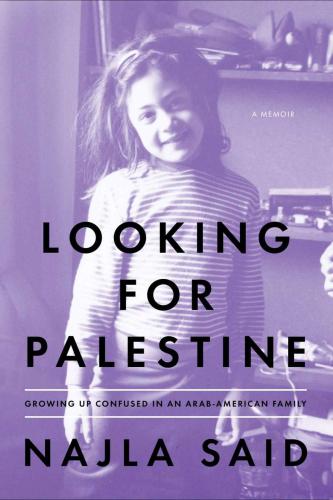
Looking for Palestine
Growing Up Confused in an Arab-American Family
کتاب های مرتبط
- اطلاعات
- نقد و بررسی
- دیدگاه کاربران
نقد و بررسی

Starred review from June 24, 2013
Said’s aching memoir explores her coming-of-age as a Christian Arab-American on New York’s Upper West Side. Her father, Palestinian-American scholar and human-rights activist Edward Said, was always her “temperamental soul mate”—passionate about art and literature, but not good with practical details—while her Lebanese-American mother managed daily life with aplomb. Said describes feeling divided by her open-minded, heterogeneous neighborhood near Columbia University. Her birth in 1974 coincided with the start of Lebanon’s decades-long civil war and continually exacerbated anxieties about her “otherness.” She relates how the escalating violence and growing anti-Arab sentiment in the U.S. eroded her self-confidence and contributed to an eating disorder. She admits to resenting her parents’ secular-humanist ideals as a child, and her brother’s smoother mix of Arab and American, heightening her feelings of “otherness.” Some readers may find her use of “Daddy” and “Mommy” oddly regressive, but these terms nicely reveal what she really desired from her parents. Empowering experiences like taking acting classes and joining an Arab-American theater group balance unsettling accounts of a harrowing 1992 visit to Gaza and her father’s 2003 death. Her complex persona, self-deprecating humor, and focus on the personal rather than the political broaden the appeal of Said’s book beyond any particular ethnic, cultural, or religious audience.

June 15, 2013
In an illuminating memoir, the daughter of Edward Said, the writer, academic and symbol of Palestinian self-determination, explores her complex family history and its role in shaping her identity. The author grappled with her convoluted family tree as a child, but she has grown weary trying to make sense of the conflicting information she has gathered. "I am a Palestinian-Lebanese-American Christian woman, but I grew up as a Jew in New York City. I began my life, however as a WASP," she writes. Said comes from a warm, loving home often populated by visiting literary celebrities such as Lillian Hellman and Cornel West, and she is confused by what others say regarding Arab culture. "I resigned myself to believing that everything people said about my culture was true," she writes, "because it was exhausting and futile to try to convince anyone otherwise." The author was a high achiever attending Princeton, yet she also battled anorexia. Following a family trip to the Middle East, including her father's homeland of Palestine, Said learned more about her family history. Her perspective shifted when she realized how little she knew about conditions in the Middle East, especially Gaza. As for many, Said's life changed following 9/11. To many Americans, the author became part of a group, an Arab-American. Said joined an Arab-American theater group, exploring and enlarging the boundaries of her identity. Following her father's death, the author spent a summer alone in Lebanon. During her visit, she discovered a compelling connection to the land and people and, ultimately, herself. An enlightening, warm, timely coming-of-age story exploring the author's search for identity framed within the confounding maze of America's relationship with the Middle East.
COPYRIGHT(2013) Kirkus Reviews, ALL RIGHTS RESERVED.

August 1, 2013
Playwright Said was raised in Manhattan's Upper West Side as the Palestinian Lebanese American Christian daughter of parents who raised her as a secular humanist. Her father was the world-famous intellectual Edward Said. Idyllic, sun-soaked, early-childhood trips to 1970s Beirut, full of family and love, only slowly betrayed a simmering turmoil therein, and Said spends most of her life understanding and recalibrating her perceptions of her ancestral homelands versus those seen through the lens trained on the Middle East by the world at large. While Najla grows up a prep-school kid in the 1980s and 1990s, she digests narrow views of the Arab character, turns them inward in painful ways, and struggles to understand the complicated patchwork of her identity. Although those with stakes in any of Said's backgrounds will have a more pointed interest in her explorations, most readers will relate to her ultimately universal discussion of growing up other. Said's memoir is both a dear tribute to her father's work and proof that acceptance of one's rootsthe hurdle to success and success itselfis most always hard earned.(Reprinted with permission of Booklist, copyright 2013, American Library Association.)

























دیدگاه کاربران